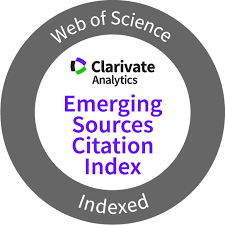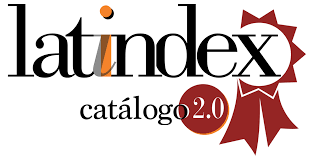The role of lobbies in the process of European construction
DOI:
https://doi.org/10.5783/revrrpp.v13i25.809Keywords:
lobby, political communication, European Union, European Parliament, European CommissionAbstract
In the process of European integration, citizens and organisations can participate through specialised bodies such as political parties, but also interest groups (Aron, 2020; Dür, Bernhagen and Marshall, 2015). This article shows how lobbies are using political communication tools to influence public institutions. This proposal aims to analyse the communication strategies of lobbies in Europe and which institutions they focus their activities on, the European Commission or the European Parliament. The aim is to find out the audiences with which they establish relations in their communication activities, to analyse which countries and which types of lobbies have the greatest presence in the register of interest groups, and how they manage their communication tools. To carry out this study, two research techniques were chosen, content analysis and survey, for which a stratified probabilistic sampling was carried out using the organisational typologies contemplated in the European Union Transparency Register as a stratum, obtaining 363 interest groups. Subsequently, for the content analysis, all registered lobbies related to both European institutions were chosen. The main findings reveal that the European Parliament is the main target of NGOs, trade union associations and companies, while employers' and academic associations focus their efforts on the European Commission. Business and employers' organisations have a stronger presence and influence in the European institutions than self-employed and faith-based organisations. Belgium is the country with the most registered lobbies. The lobbying sector is dominated by middle-aged men with legal training and professional experience who prefer direct lobbying and make marginal use of indirect lobbying tools.
Downloads
References
Almansa-Martínez, A., & Fernández-Souto, A.-B. (2020). Professional Public Relations (PR) trends and challenges. Profesional De La información, 29(3). https://doi.org/10.3145/epi.2020.may.03
Aron, R. (2020). Lobby digital: como o cidadão conectado influencia as decisões de governos e empresas. Aberje Editorial.
Austen-Smith, D. (1993). Information and Influence: Lobbying for Agendas and Votes. American Journal of Political Science, 37(3), 799-833. https://doi.org/10.2307/2111575
Beyers, J.; Dür, A.; Wonka, A. (2018). The political salience of EU policies. Journal of European Public Policy, 25(11), 1726-1737. https://doi.org/10.1080/13501763.2017.1337213
Biliouri, D. (1999). Environmental Ngos in Brussels: How powerful are their lobbying activities? Environmental Politics, 8(2), 173-182. http://dx.doi.org/10.1080/09644019908414472
Binderkrantz, A.S.; Pedersen, H.H. (2019). The lobbying success of citizen and economic groups in Denmark and the UK. Acta Politica, 54(1), 75-103. https://doi.org/10.1057/s41269-017-0076-7
Castillo Esparcia, A., Moreno Cabanillas, A., & Almansa Martinez, A. (2023). Lobbyists in Spain: Professional and Academic Profiles. Social Sciences, 12(4), 250, https://doi.org/10.3390/socsci12040250
Chari, R. & Hillebrand O'Donovan, D. (2011). Lobbying the European Commission: Open or Secret?, Socialism and Democracy, 25(2), 104-124. https://doi.org/10.1080/08854300.2011.579475
De Bruycker, I. y Beyers, J. (2019). Lobbying strategies and success: Inside and outside lobbying in European Union legislative politics. European Political Science Review, 11(1), 57-74. https://doi.org/10.1017/S1755773918000218
Dür, A., Bernhagen, P. y Marshall, D. (2015). Interest group success in the European Union: When (and Why) does business lose? Comparative Political Studies, 48(8), 1-52. http://dx.doi.org/10.1177/0010414014565890
Europa.eu. Registro de Transparencia. https://ec.europa.eu/transparencyregister/public/homePage.do?redir=false&locale=es
European Union, Euratom (2014). COMMISSION DECISION of 25 November 2014 on the publication of information on meetings held between Members of the Commission and organisations or self-employed individuals (2014/839/EU, Euratom). Official Journal of the European Union. https://eur-lex.europa.eu/legal-content/EN/TXT/HTML/?uri=CELEX:32014D0839
Flöthe, L. (2019). Technocratic or democratic interest representation? How different types of information affect lobbying success. Interest Groups & Advocacy, 8, 165-183. https://doi.org/10.1057/s41309-019-00051-2
Giger, N. y Klüver, H. (2015). Voting against your constituents? How lobbying affects representation. American Journal of Political Science, 60(1), 190-205. https://doi.org/10.1111/ajps.12183
Reh, C., Bressanelli, E. y Koop, C. (2020). Responsive withdrawal? The politics of EU agenda-setting. Journal of European Public Policy, 27(3), 419-438. https://doi.org/10.1080/13501763.2020.1712453
Stevens, F.; De Bruycker, I. (2020). Influence, affluence and media salience: Economic resources and lobbying influence in the European Union. European Union Politics, 21(4), 728-750. https://doi.org/10.1177/1465116520944572
Woll, C. (2006). Lobbying in the European Union: From sui generis to a comparative perspective. Journal of European Public Policy, 13(3), 456-469. http://dx.doi.org/10.1080/13501760600560623
Downloads
Published
How to Cite
Issue
Section
License
Copyright (c) 2023 Andrea Moreno Cabanillas, Antonio Castillo Esparcia

This work is licensed under a Creative Commons Attribution-NonCommercial-NoDerivatives 4.0 International License.
Authors publishing in this journal agree to the following terms:
a. Authors retain copyright and grant the journal the right to be the first publication of the work as licensed under a Creative Commons Attribution License that allows others to share the work with an acknowledgement of authorship of the work and initial publication in this journal.
b. Authors may separately enter into additional arrangements for non-exclusive distribution of the version of the work published in the journal (e.g., placing it in an institutional repository or publishing it in a book), with an acknowledgement of initial publication in this journal.
c. Authors are allowed and encouraged to disseminate their work electronically (e.g. in institutional repositories or on their own website) before and during the submission process, as it can lead to productive exchanges, as well as earlier and higher citation of published work (see The Effect of Open Access).





